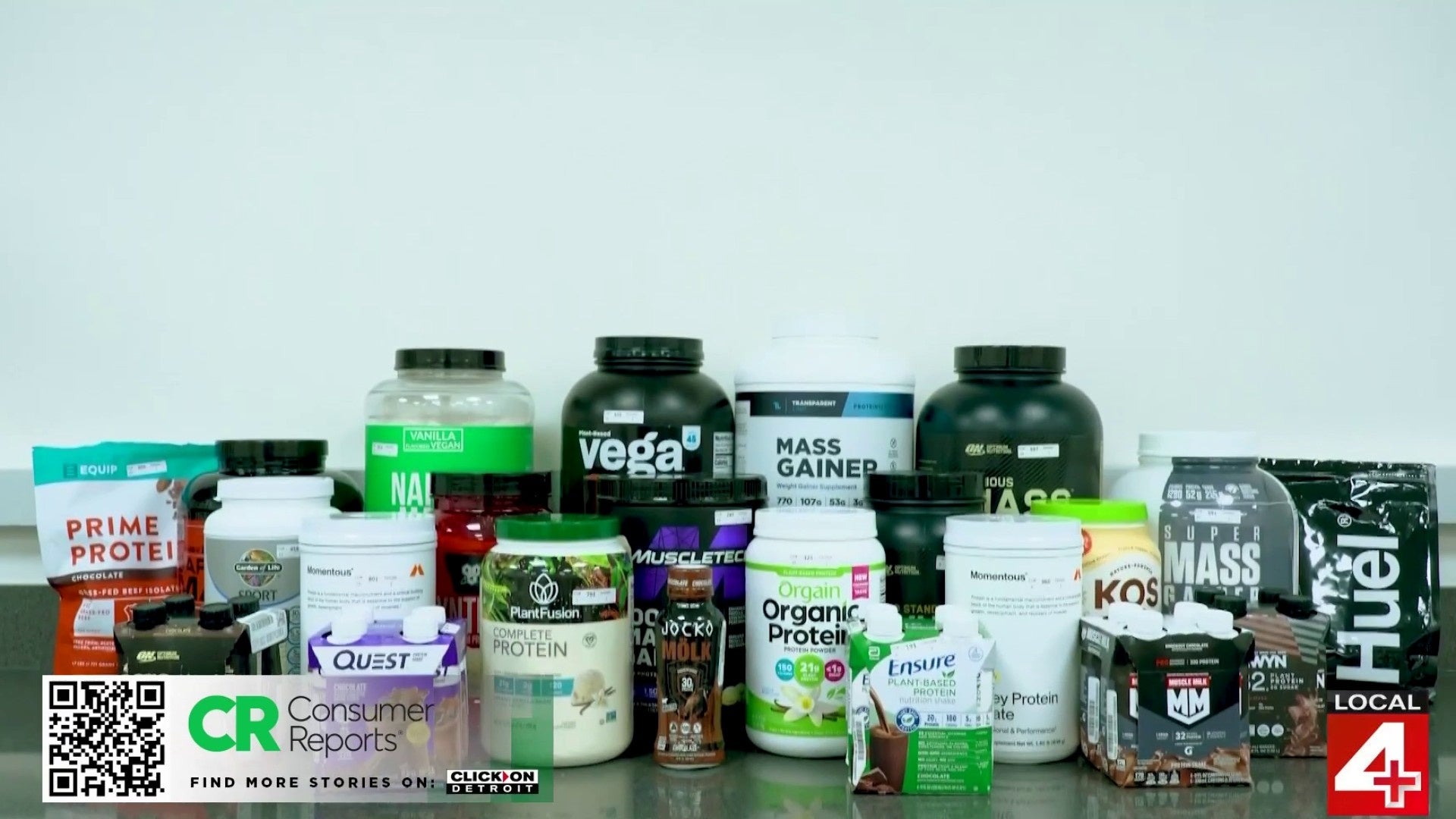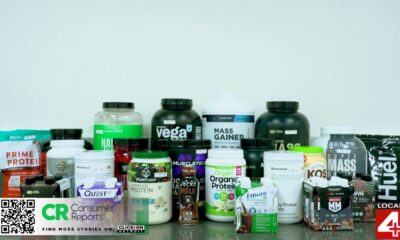Health
Consumer Reports Reveals Lead Contamination in Protein Powders

A recent investigation by Consumer Reports has revealed alarming levels of lead in several popular protein powders and shakes, raising health concerns for consumers. The study tested 23 different protein products, and the findings indicate that over two-thirds contained lead levels exceeding what experts deem safe for daily consumption. In some instances, the lead concentrations were more than ten times higher than the recommended limits.
The investigation highlighted that plant-based protein powders posed the greatest risk. These products contained lead levels that were nine times higher than those found in dairy-based protein powders and double that of beef-based options. For example, Naked Nutrition’s Vegan Mass Gainer tested at approximately 1,570 percent of the daily lead limit established by Consumer Reports. Similarly, Huel’s Black Edition vegan powder showed concerning levels at more than 1,200 percent of the safe limit.
In light of these findings, Consumer Reports experts advise consumers to avoid these particular products. A spokesperson for Huel stated that the company conducts “rigorous testing” on its ingredients and expressed confidence in the safety of their formulations. Meanwhile, Naked Nutrition has responded to the findings by requesting a third-party test of its Mass Gainer Supplement powder, emphasizing its commitment to customer health.
While plant-based powders raised the most red flags, the investigation did not spare dairy-based protein powders from scrutiny. According to Paris Martineau, an investigative reporter with Consumer Reports, these products generally contained lower amounts of lead. However, the report noted that approximately half of the tested dairy-based powders still had concerning levels of lead or other contaminants, prompting experts to recommend against their daily use.
Nutritionists suggest that most individuals do not need protein supplements at all. Everyday foods such as beans, tofu, eggs, dairy, fish, and lean meats typically provide sufficient protein. For those who choose to incorporate protein powders into their diet, experts recommend using them sparingly due to the associated risks.
Moreover, Consumer Reports highlighted that the nutrient most commonly lacking in diets is fiber, which is linked to improved long-term health outcomes. Current federal dietary guidelines recommend that adults consume between 22 and 34 grams of fiber daily, depending on age and sex.
As consumers increasingly turn to protein supplements for workout recovery or meal replacement, these findings serve as a critical reminder to scrutinize the safety of dietary products. With the revelation of lead contamination, individuals are urged to consider their choices carefully and prioritize whole foods over potentially harmful supplements.
-

 Science1 week ago
Science1 week agoNostradamus’ 2026 Predictions: Star Death and Dark Events Loom
-

 Technology1 month ago
Technology1 month agoOpenAI to Implement Age Verification for ChatGPT by December 2025
-

 Technology6 months ago
Technology6 months agoDiscover the Top 10 Calorie Counting Apps of 2025
-

 Health4 months ago
Health4 months agoBella Hadid Shares Health Update After Treatment for Lyme Disease
-

 Health4 months ago
Health4 months agoAnalysts Project Stronger Growth for Apple’s iPhone 17 Lineup
-

 Health4 months ago
Health4 months agoErin Bates Shares Recovery Update Following Sepsis Complications
-

 Technology4 months ago
Technology4 months agoElectric Moto Influencer Surronster Arrested in Tijuana
-

 Technology5 months ago
Technology5 months agoDiscover How to Reverse Image Search Using ChatGPT Effortlessly
-

 Technology6 months ago
Technology6 months agoMeta Initiates $60B AI Data Center Expansion, Starting in Ohio
-

 Technology6 months ago
Technology6 months agoRecovering a Suspended TikTok Account: A Step-by-Step Guide
-

 Technology2 months ago
Technology2 months agoDiscover 2025’s Top GPUs for Exceptional 4K Gaming Performance
-

 Health6 months ago
Health6 months agoTested: Rab Firewall Mountain Jacket Survives Harsh Conditions

















